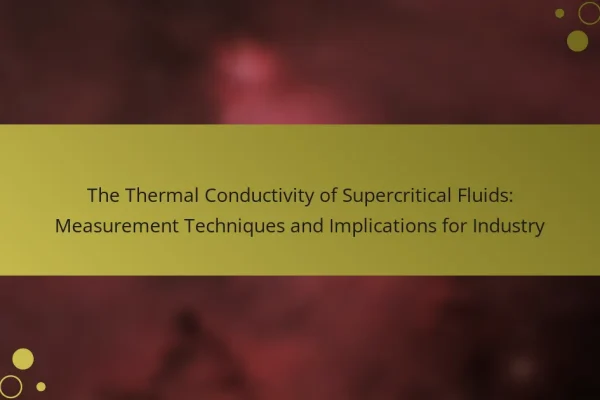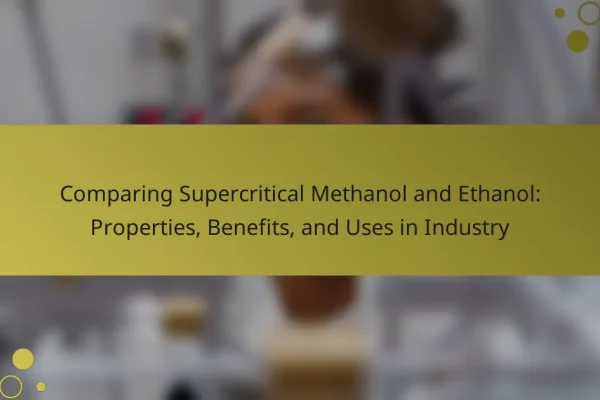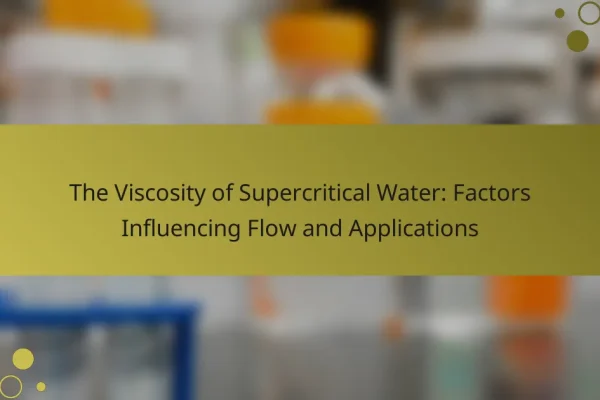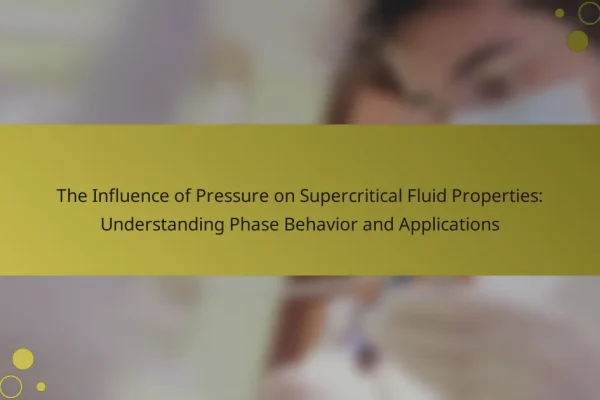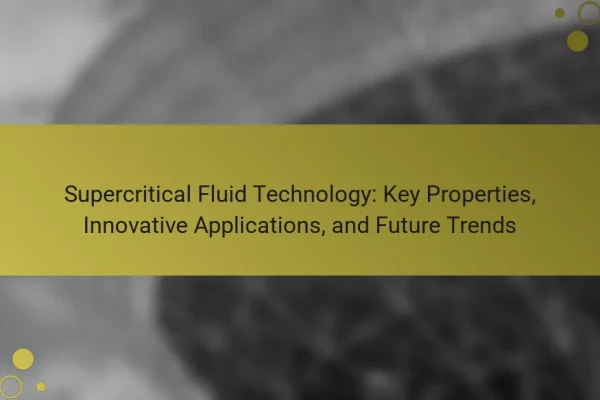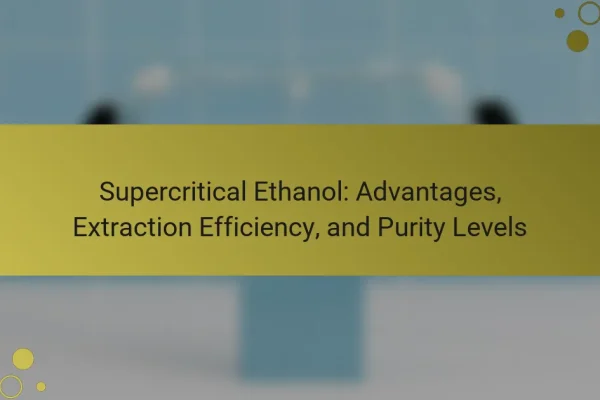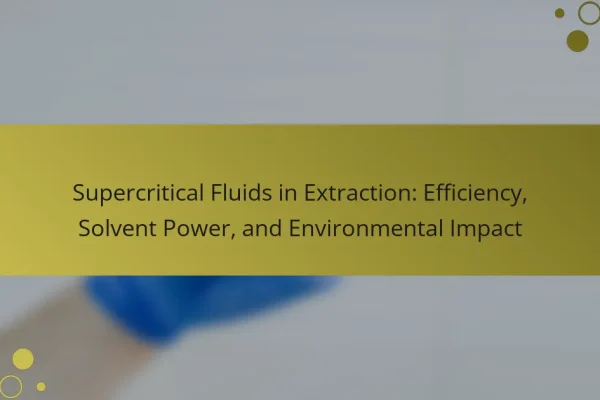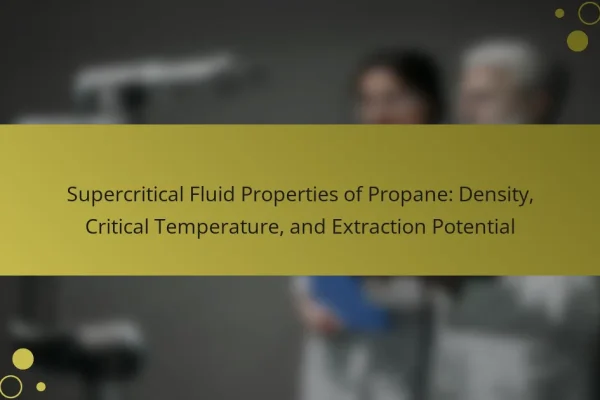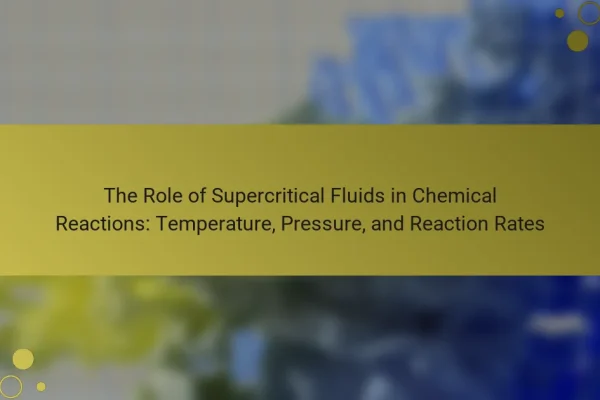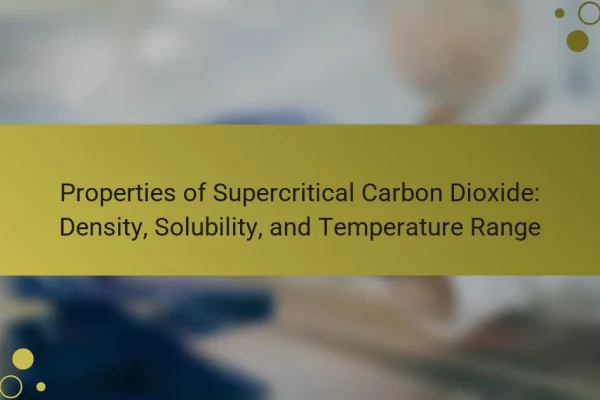
Properties of Supercritical Carbon Dioxide: Density, Solubility, and Temperature Range
Supercritical carbon dioxide (scCO2) is a state of carbon dioxide characterized by its unique properties, occurring above a critical temperature of 31.1°C and a critical pressure of 73.8 bar. In this state, scCO2 exhibits a density akin to liquids while maintaining gas-like viscosity, making it an effective solvent for various non-polar compounds. The article explores…
